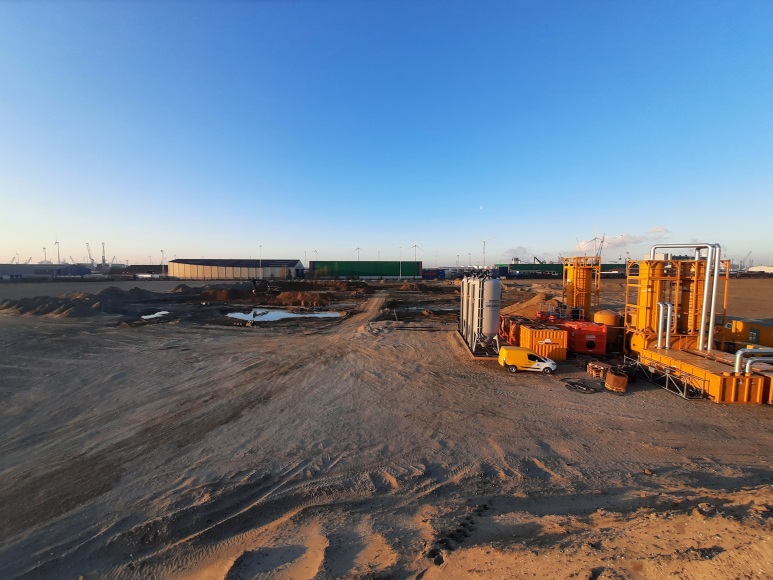On 7 July 2023, the Flemish government gave the green light to the Temporary Operating Framework regarding the use of PFAS-containing soil materials and the completion of the remediation criterion. It is expected to come into force in early 2024 and will provide more clarity to all those involved in construction projects. It integrates recent scientific insights and takes into account future developments in this field. We will be happy to guide you during these major changes that will affect the entire sector.
What changes will be made?
The Temporary Operating Framework for PFAS brings with it important legislative changes that have significant implications for the entire industry. We are happy to summarise them briefly:
- Standards for PFOS, PFOA and total concentration of PFAS are now set by decree.
- Land use in water catchment areas, protection zones and underwater applications (surface water and below groundwater level) is now subject to a mandatory quality test. It is therefore no longer sufficient to merely meet the standards for free use.
- There is now a distinction in the assessment within the cadastral work zone, depending on use as soil or as constructional land use.
- Use within the cadastral work zone and as a constructional land use may require leaching studies, and within the cadastral work zone may also require additional groundwater studies.
- Many lots can only be used above the average groundwater level at the final destination. This should be determined in advance by a recognised soil remediation expert.
What does this mean for your project?
With the coming into force of the framework, all existing technical reports or permits for soil movement expire unless they comply with the framework requirements. Therefore, a reassessment by an accredited soil remediation expert and adjustment of the compliance statement at the soil management organisation are always required. Additional PFAS research is required in the following situations:
- If PFAS analyses have not yet been performed in the technical report or are insufficient.
- If the reporting threshold for one or more of the individual PFAS parameters has been exceeded.
- For the evaluation of uses within the cadastral work zone or as construction land use.
The investigations can take different forms such as leaching tests, sampling for PFAS or groundwater investigations for reuse within the project.
To optimise site planning, it is highly recommended to engage a registered soil remediation expert in time to assess the impact of the framework on your project site. This can help you avoid potential complications and ensure a smooth execution of your works.
Prepare in time
Once the PFAS Temporary Operating Framework actually comes into force, there is no transition period. That means all projects will have to comply with the new regulations immediately from that date. What will certainly be crucial then? Making the necessary preparations now and avoiding delays in projects. Our team is ready to guide you in the transition to these new standards and regulations.

Antea Group as accredited soil remediation expert
Antea Group is ready to support you as a consultant and accredited soil remediation expert. Our services include:
- Advice on the organisation of the soil remediation (with breakdown for 2023-2024).
- Re-evaluation of technical reports and conducting additional research in accordance with the Temporary Operating Framework (THK) for PFAS.
- Communication with and application of adjustments to the compliance statement to the soil management organisation.
- Supervision during implementation of the works to ensure compliance with framework requirements.
- Determination of the average groundwater level on a receiving site.
With Antea Group, you can count on professional support to carry out your project successfully and in compliance with the new PFAS regulations.
Curious about the impact on your project?
Questions about the Temporary Operating Framework for PFAS?
We are happy to help!



